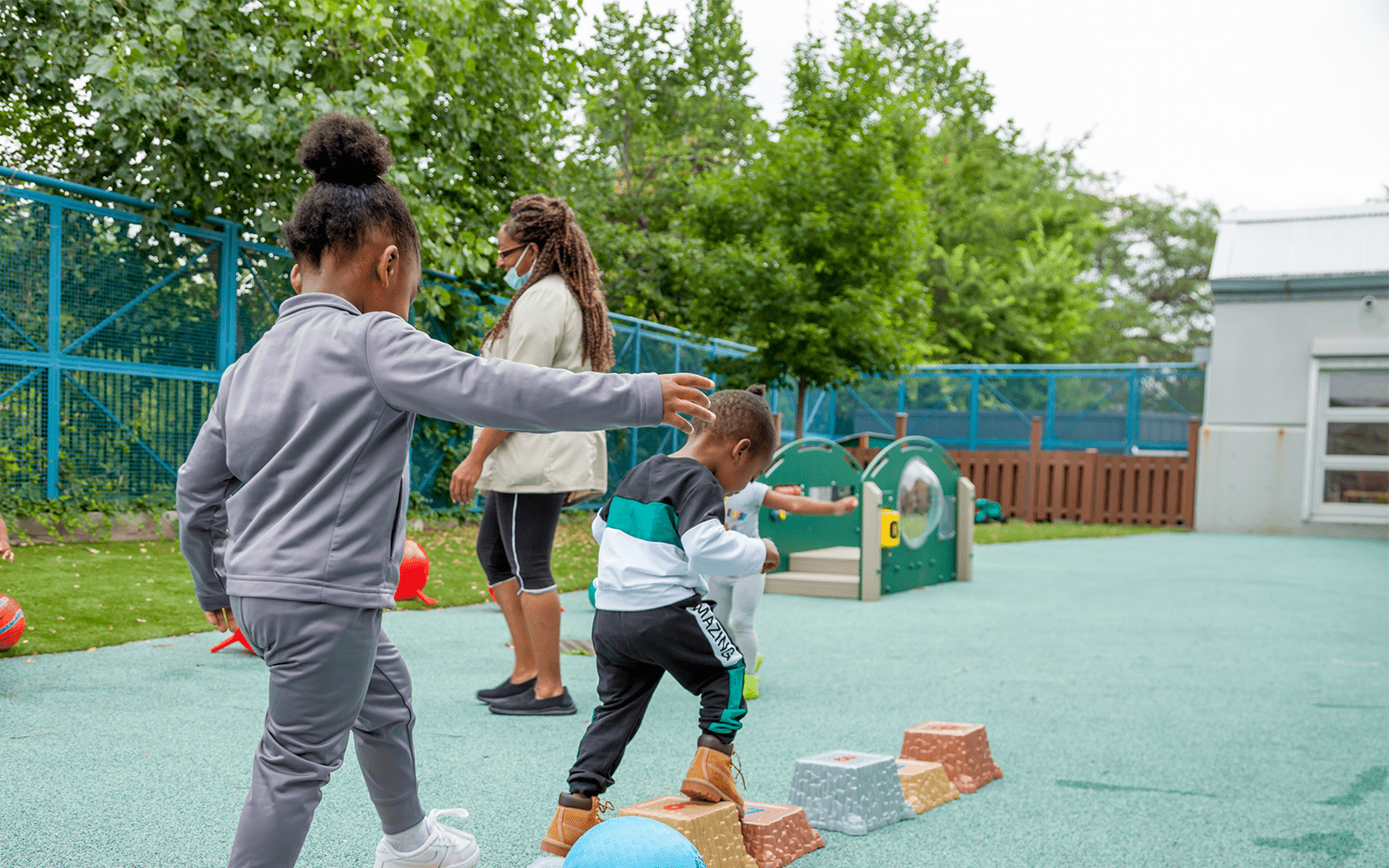Last month, Illinois Governor J.B. Pritzker signed the Fiscal Year 2023 budget into law. The new budget includes increases in statewide investments in many core early learning and care supports for families with young children, roughly 200,000 of whom live in Chicago and stand to benefit from this additional funding.
These funds provide the opportunity to address longstanding early childhood workforce issues in the city that have been greatly exacerbated by the COVID-19 pandemic. Outlined below are several of the most notable impacts of Illinois’ newest budget on Chicago’s youngest learners and those who support their healthy development and education.
EARLY CHILDHOOD BLOCK GRANT: $54.4 Million Increase
Start Early’s state budget analysis includes a welcome increase of $54.4 million (10% increase) in state funding for preschool, evidence-based home visiting services and center-based infant-toddler programs funded by the Early Childhood Block Grant (ECBG) at the Illinois State Board of Education (ISBE). As is required by state statute, Chicago Public Schools (CPS) will receive 37%, which translates to roughly $20 million of the $54.4 million increase previously mentioned.
Of this allocated funding, CPS has traditionally held on to 60% to fund their school-based pre-Kindergarten (pre-K) programs and sub-granted the remaining 40% to Chicago’s Department of Family and Support Services (DFSS), which are used to fund home visiting and center-based services in community-based programs. This breaks down to roughly $12 million more in funding directly for CPS’ pre-K programs and an additional $8 million in funding for DFSS community-based early childhood programs.
Notably, CPS recently made free full-day pre-K available to every 4-year-old in the city, causing so much excitement among families that the Chicago Early Learning registration site crashed shortly after the application went live. With universal access to 4-year-old pre-K on the horizon, Start Early calls on CPS to turn its focus toward ensuring that children in these classrooms have teachers who are well-qualified and supported. One way to do so is fully funding the City College’s Chicago Early Learning Workforce Scholarship, which currently affords to only grant funds to fewer than half of the prospective early childhood teachers who apply each year.
With an increased need for early childhood professionals, the current funding level is inadequate for meeting the critical number necessary. In fact, a pre-pandemic analysis found that an estimated 3,000 new early childhood educators will be needed across the city by 2024 – a number that is undoubtedly now insufficient as a result of the pandemic and its heightened effects on the field.
In addition to supporting pathways to credentials for educators, Start Early also calls on the City of Chicago to prioritize using funds to encourage qualified staff to remain in the early childhood field. Incentives for improving staff retention in community-based early childhood programs must include increasing compensation for home visiting and center-based staff, as well as ensuring that educators in these settings have the resources and support necessary to meet the needs of children with disabilities and English Learners.
EARLY INTERVENTION: $7 Million Increase
This slight increase in state funding for Early Intervention (EI) comes at a time when child care providers and EI providers in Chicago report decreased access to services and long waitlists for children ages 0-3 with disabilities, as well as unmanageable caseloads for EI providers. It remains to be seen how the state will use these additional funds, but providers are calling for rate increases and other incentives to keep qualified individuals in the EI workforce.
HOME VISITING: $1 Million Increase
The Illinois Department of Human Services (IDHS) is set to receive an additional $1 million to support its Healthy Families and Maternal Child Home Visiting programs. Start Early is advocating for IDHS to prioritize stabilizing the workforce before growing the reach of services through an increase in compensation for home visitors. A compensation increase is supported by the salary floor requirements in IDHS’s competitive Notice of Funding Opportunity, with a higher minimum salary for Cook County (which includes the City of Chicago) due to the area’s higher cost of living.
In addition to the state’s budget bill, the Illinois General Assembly passed HB4242, a bill that, if signed by Governor Pritzker, would extend automatic eligibility for Child Care Assistance for parenting youth in care and families on the DCFS Extend Family Support Program (EFSP), effective July 1, 2023. The bill would also extend automatic eligibility to EI for infants and toddlers in the child welfare system, effective July 1, 2022. Given the proportion of children in the state’s child welfare system who live in Chicago, this bill is likely to result in access to critical services for thousands of the city’s children.
Understanding how these additional funds in the above categories are being allocated by the state to support families with young children is especially important as we head into the City of Chicago’s budget season, work to identify gaps and re-emphasize recommendations for the city’s investment of local funds to best serve the city’s early learning system.
Read Start Early’s analysis of the state budget to learn about other important legislative measures impacting the state’s early care and education system.


